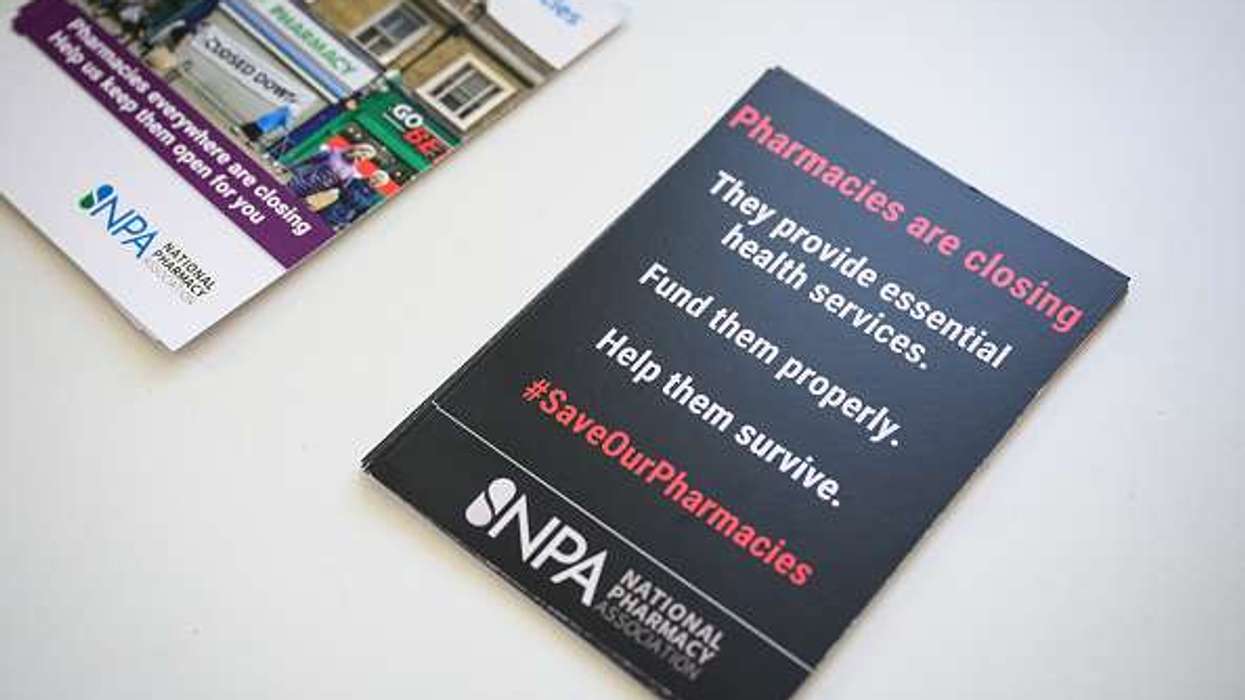Staff shortages leading to longer waiting times for patients and increased pressure on pharmacy teams
Community Pharmacy England (CPE) has published its latest Pharmacy Pressures Survey report, highlighting the impact of staffing shortages, underfunding, escalating workload pressures, and extreme stress and burnout.
These pressures are affecting not only the personal and professional lives of pharmacy staff but also the quality of patient care.
The Pressures Survey 2024: Staffing and Morale Report is based on the views of the owners of over 6,100 pharmacy premises in England and 2,000 pharmacy team members.
In the survey, 86 per cent of pharmacy team members reported that staffing shortages have resulted in longer waiting times for patients, impacting timely access to medication and advice.
Nearly two-thirds (62 per cent) of pharmacy staff indicated that staffing shortages have led to a reduced ability to offer services or advice to patients in need.
Almost all pharmacy staff (92 per cent) stated that they were not coping well and were struggling with their workload.
Three-quarters of pharmacy owners reported that they are finding it increasingly difficult to recruit permanent staff, with approximately 1 in 10 having to close their pharmacies temporarily due to staff shortages.
Janet Morrison, chief executive of CPE, said: “Staffing pressures and morale in community pharmacies are at an all-time low, pushing businesses to the brink and forcing professionals who love working with patients to consider leaving the sector altogether.”
She expressed deep concern about staff wellbeing and the negative impact that the current pressures are having on both the mental health of the community pharmacy workforce and patient care.
“Community pharmacy teams are working non-stop to protect their patients and local communities, but a workforce that is falling over does not support the delivery of quality patient care.
“If pharmacy staff are overworked, understaffed, harassed and facing significant stress, it negatively affects their ability to meet patient needs,” she said.
Morrison emphasised the need to address workforce shortages, along with the critical funding constraints and capacity issues within the sector.
“Our survey findings show there are simply not enough pharmacists or wider pharmacy team members and that this is having a significant impact on their workload and morale.
“If we want to make full use of the clinical skills of community pharmacists and their teams, we must address these workforce shortages, as well as the critical funding constraints and capacity issues, in the sector,” she added.
According to NHS data, there were 44,768 recorded temporary closures of community pharmacies between October 2021 to March 2024.
The CPE analysis of this data indicates that many of these are related to workforce issues.
Community Pharmacy England is calling for increase funding to support recruitment and retention of pharmacy staff.
It said: “The NHS has set out ambitions to grow the community pharmacist workforce, but for this ambition to become a reality, the government and the NHS must also provide fairer funding for pharmacies.
“The introduction of the National Living Wage uplift in April 2024 resulted in additional costs of £170 to £190m for the sector. Addressing the unaffordable 80 per cent increase in locum pharmacist costs between 2022 and 2023 is also essential.”
It has urged the government to fulfil all pharmacy workforce related pledges within the NHS Long-Term Workforce Plan.
“Fully implementing plans to expand the training and development of the workforce will significantly aid recruitment and retention in the sector,” the CPE said.
Additionally, it has recommended that the NHS should consider the impact of the Additional Roles Reimbursement Scheme (ARRS).
Since its introduction in 2019, the scheme has led to the recruitment of over 5,000 pharmacists, primarily from community pharmacy, into GP surgeries and PCNs.
“This has resulted in shortages, temporary closures and rising costs,” the CPE added.
Other pharmacy bodies including, the National Pharmacy Association (NPA) and the Company Chemists’ Association (CCA), also underscored the need to tackle the sector's underfunding to address these challenges.
Commenting on the report, Paul Rees, chief executive of the NPA said: "This report rightly highlights the significant workload and workforce challenges facing community pharmacy due to the impact of a decade of underfunding.
"Pharmacies are having to manage significant higher workloads due to increased demand at the same time as navigating cuts to funding and difficulties in recruiting.
"This is pushing many to the brink, with a record number of pharmacies closing just in the last year and others taking drastic steps to stay open.”
He urged the government to provide community pharmacies with a new funding deal that would prevent closures and enable them to manage the rising demand.
Malcolm Harrison, CEO of the CCA, echoed that addressing the underfunding of the sector in England is key to resolving the ongoing and concerning workforce challenges facing community pharmacy.
He said: “There is now an annual funding shortfall of £100,000 per pharmacy compared to 2015. This is money that pharmacies could use to invest in additional staff and innovative technologies to reduce the pressures currently experienced.”
The NHS Long-Term Workforce Plan set out targets to increase the pharmacy workforce.
However, at the current rate of growth, the CCA estimates that it could take over 500 years to achieve these.
“The year the NHS Workforce Plan was published, the number of community pharmacists actually decreased by 178.
"Moreover, we are yet to see any kind of roadmap for independent prescribing which matches the scale of ambition required to harness this generational opportunity,” Harrison added.













